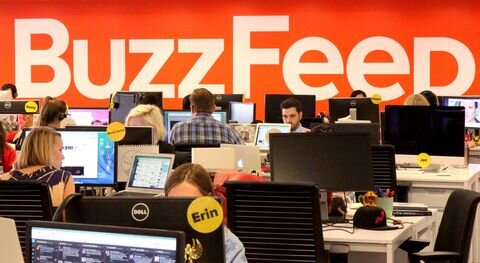Fallout for BuzzFeed following release of Trump/Russia dossier By Zach Merchant
BuzzFeed News recently made headlines and raised some eyebrows when it released a dossier of unverified memos detailing alleged ties between President-Elect Trump and the Russian government. The dossier had been circulating among members of the media for some time prior to BuzzFeed’s decision to publish but hadn’t been made public because the details could not be verified. Several, in fact, were proven to be wrong.
Nonetheless, BuzzFeed published the full 35-page dossier, cautioning in the article’s subtitle that “the allegations are unverified, and the report contains errors.” The move brought near-universal condemnation from traditional media outlets for defying journalistic norms by publishing unconfirmed facts. BuzzFeed’s editor-in-chief Ben Smith acknowledged that it “was not an easy or simple call” but justified the decision saying, “publishing this dossier reflects how we see the job of reporters in 2017.”
BuzzFeed has been building up its news team for some time in an attempt to legitimize (and differentiate from its more popular quizzes and listicles) its news operation. The notion that a young media outlet hungry to be viewed as a major player would publish something as red hot as the dossier, and be willing to bend journalistic norms in the process, shouldn’t come as a complete surprise. In the age of rapidly emerging, digitally native media companies with an eye towards news, something like this, no matter how regrettable, was bound to happen.
What’s more alarming is the notion that a news organization views the publication of unverified documents as the job of reporters in the year 2017. Perhaps this was simply a justification BuzzFeed cooked up to support the publication of controversial documents. That’s a possibility. But assuming that Ben Smith meant what he said, the ramifications of his statement are far reaching. If, after exhaustive investigation, a team of journalists comes to the conclusion that document can’t be substantiated and you opt to publish it anyway, what exactly are the journalists needed for?
Photo by David Bertozzi/Buzzfeed
Journalists at their best have stood as guardians of the truth. They serve as a check against the power of public officials and prominent private citizens alike by pursuing the stories that the powerful don’t want made public. It has always been this ability to reveal and inform that gave the news media its strength. That strength, however, was predicated on a trust between the public and the press. It’s for this reason that journalistic ethics have for so long demanded rigorous fact checking before publication. Factual errors erode the public’s trust—and by extension, journalists’ ability to keep the powerful in check.
If Smith’s allegation is true, that journalists in 2017 have become little more than raw information distributors “so that Americans can make up their own minds,” then why should someone trust the information coming from a journalist any more than their friends and colleagues? In this scenario, most would argue, they shouldn’t.
The situation isn’t as grave for journalism as Smith (deliberately or otherwise) has put it. But it’s equally true that the reckless publication of what equate to little more than rumors has undeniably contributed to the record-low levels of trust the public has in the news media. At a time when the incoming president has repeatedly threatened restrictive measures against the press unheard of in modern times, this is distinctly bad. The news media needs all the strength it can bring to bear if it hopes to check the power of a politician unlike any America has seen before.
To do that, the industry as a whole must not follow the path BuzzFeed blazed with the dossier release. Established outlets and newcomers alike must reach an understanding of certain common goals and practices—chief among them, rebuilding the public’s trust through ethical, factual reporting. There’s no doubt that this is easier said than done; market forces drive news organizations to great lengths trying to outscoop each other. That’s fine, so long as it doesn’t push some members of the press to publish anything prematurely. When it does, as BuzzFeed proved last week, the whole industry loses.
Zach Merchant (@wzmerchant) is an Arlington Public News reporter covering the greater-Boston area and journalism student at Tufts University






